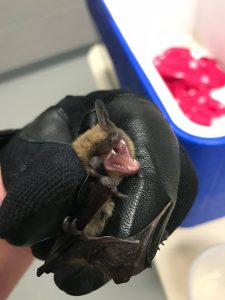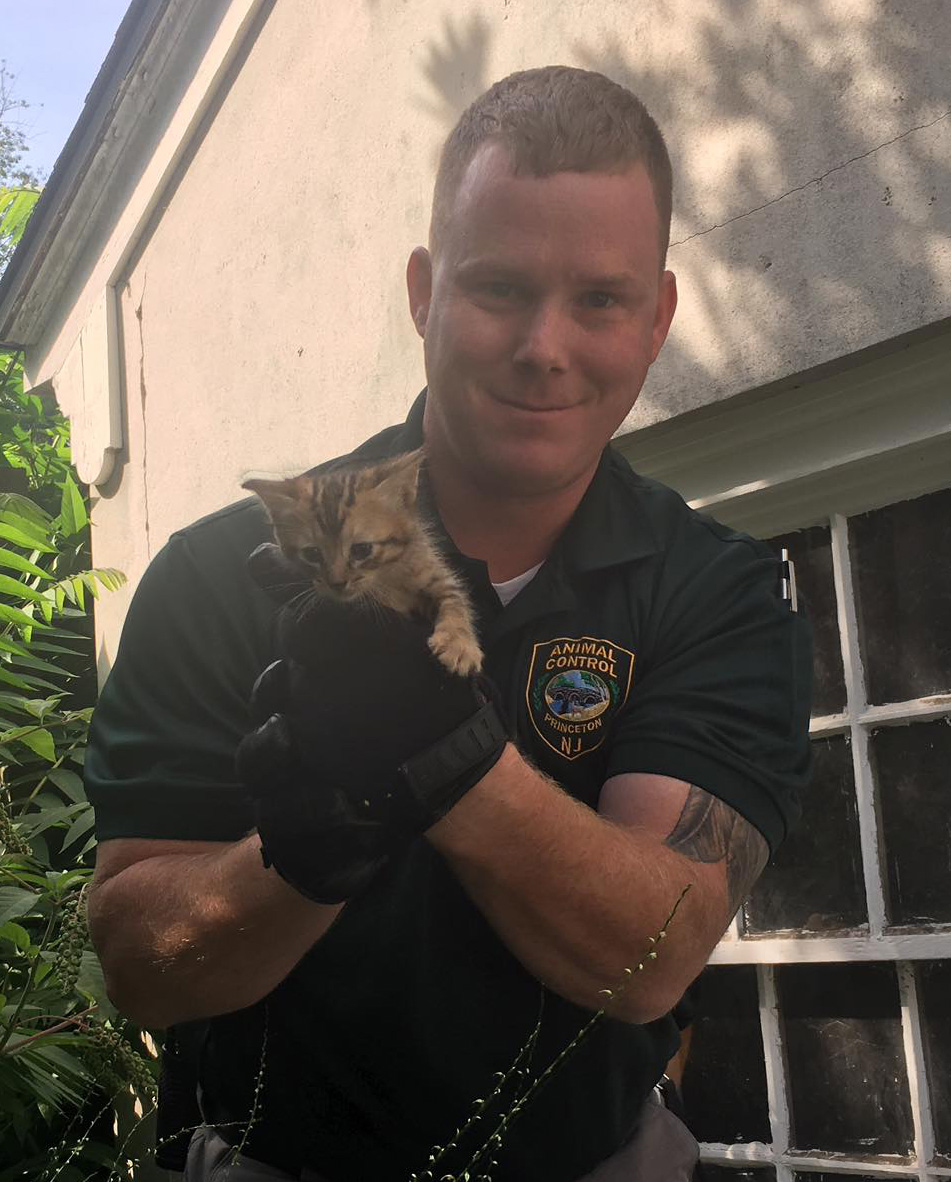 Alerts of black bear sightings over the past two weeks (in Montgomery and Hamilton) remind us that we’re not the only ones living in the area. Princeton is an 18-square mile community comprised of suburban and commercial development, agricultural fields, parks, and open grasslands/forests. A community that enjoys diverse ecosystems with a variety of wildlife, some of which can come near your home and into contact with people and pets. Most people in the area don’t have problems with these encounters, but its best to know what you should do, just in case. As Princeton’s Animal Control Officer, I would like to share some of the common calls I receive and some best practices for wildlife interactions.
Alerts of black bear sightings over the past two weeks (in Montgomery and Hamilton) remind us that we’re not the only ones living in the area. Princeton is an 18-square mile community comprised of suburban and commercial development, agricultural fields, parks, and open grasslands/forests. A community that enjoys diverse ecosystems with a variety of wildlife, some of which can come near your home and into contact with people and pets. Most people in the area don’t have problems with these encounters, but its best to know what you should do, just in case. As Princeton’s Animal Control Officer, I would like to share some of the common calls I receive and some best practices for wildlife interactions.
 Animal Control doesn’t help with all animals and nuisances that come in or near your home. Sometimes, the issue is best tended to by a private pest company or other services. Here are the types of services animal control offers relating to wildlife.
Animal Control doesn’t help with all animals and nuisances that come in or near your home. Sometimes, the issue is best tended to by a private pest company or other services. Here are the types of services animal control offers relating to wildlife.
- Cases where rabies vector species such as bats, raccoons, skunks, foxes, and groundhogs have come into direct contact with a human or domestic animal. The goal here is to attempt to capture the animal in question and submit it for rabies testing if necessary.
- Cases where rabies vector species are in a living space of a home or building, making it unsafe to occupy. This does not cover basements, crawlspaces, or attics.
- Cases where it is determined that an animal is in immediate distress or danger or is otherwise in immediate need of care. Any animal that is found to be sick or injured would generate a response from Animal Control. If the sick or injured animal can be captured and assessed, the animal may be transported to the Mercer County Wildlife Center for further assessment and/or rehabilitation.
Animal Control in New Jersey was in part founded on the premise of rabies control. Rabies is a viral infection of the central nervous system that can affect any warm-blooded animal, a.k.a. mammals. The virus is usually passed through an infected animal’s saliva via a bite or scratch. Due to the lethal nature of rabies, rabies vector species interactions are taken very seriously. Let’s touch on some of those species now.
Foxes
 Over the past 10 years, the overall fox population in Princeton has increased substantially. This means the environment is good for sustaining such a population. Foxes feed on rodents, birds, squirrels, rabbits, and even scavenge on larger carcasses like deer. Foxes are not aggressive by nature and are the most active during the springtime. This is when they have their young.
Over the past 10 years, the overall fox population in Princeton has increased substantially. This means the environment is good for sustaining such a population. Foxes feed on rodents, birds, squirrels, rabbits, and even scavenge on larger carcasses like deer. Foxes are not aggressive by nature and are the most active during the springtime. This is when they have their young.
I get many calls about a “fox family in my back yard, where did they come from?” Foxes love to den under sheds, porches, or any other plural space near houses. Typically, mating pairs will work together to provide food for their kits (infant foxes) and will remain in the area until mid-summer when the fox kits reach young adulthood and move on. Foxes are territorial and do not travel in packs, like wolves. They are opportunistic hunters, meaning they do not typically hunt something that can fight back.
Most concerns from residents regarding foxes are just the presence of them. With the population increasing, sightings are more common. Many are concerned about small pets and children. There has never been a reported fox “attack” on a person and most pet interactions are brief with the fox evading. That being said, Animal Control did have one positive rabies test on a fox in 2021 who was having a seizure under a car. Thankfully there was no exposure to person or pet. Last year, 8 rabid foxes were confirmed statewide, compared to 99 raccoons, so the rabies threat is relatively low.
The best way to ensure a safe interaction with a fox is to never feed them, always walk your dog on a leash (it’s the law anyway!) and report any fox that seems to have a neurological issue, such as walking in circles, falling over, seizing or otherwise not well. It is common to see foxes inhabit yards, parks, and golf courses. If a fox is causing damage to property, a homeowner should contact a local wildlife pest service. Princeton Animal Control will not remove or relocate foxes due to state guidelines.
Bats
 Bats are by far the most common rabies vector species to come close contact with humans and pets. They are true nocturnal animals and sometimes find their way into the living space of the home. Residents may wake up from sleep and notice a bat flying in their bedroom. This will prompt a response from Animal Control, sometimes in the middle of the night to capture the bat that way it can be tested for rabies and proper procedure can be followed to ensure the safety to all persons or pets who may have been exposed. Bats have tiny teeth and a bite can be hard to detect so we always err on the side of caution with these exposures.
Bats are by far the most common rabies vector species to come close contact with humans and pets. They are true nocturnal animals and sometimes find their way into the living space of the home. Residents may wake up from sleep and notice a bat flying in their bedroom. This will prompt a response from Animal Control, sometimes in the middle of the night to capture the bat that way it can be tested for rabies and proper procedure can be followed to ensure the safety to all persons or pets who may have been exposed. Bats have tiny teeth and a bite can be hard to detect so we always err on the side of caution with these exposures.
Bats that make their way into houses usually happen when there is a roost in the attic. They can make their way down into the living space through cracks in the wall or ceiling following drafts of warm air. Anyone who has a bat in the house should call for Animal Control right away and attempt to isolate the bat into a room. As far as removing a bat colony from the attic, this can only be done in the month of April, or from August 1st through October 15th. Bat are protected and not to be killed.
Residents with bats in their attic should hire a wildlife control company that specializes in bat exclusions. A one-way door will need to be constructed and all other entry points should be sealed off so when the bat leaving the attic roost, it cannot get back in. Bats are the primary predator of nighttime flying incents, including the mosquito. A very important role to keep NJ mosquitos in check.
Bears
 The NJ Black Bear populations are also on the rise. Being the largest land mammal in the state, these interactions are often met with panic. Last summer Princeton had at least one, possibly two bears roam the town for a few weeks. This bear was foraging for food in dumpsters, garbage cans and bird feeders.
The NJ Black Bear populations are also on the rise. Being the largest land mammal in the state, these interactions are often met with panic. Last summer Princeton had at least one, possibly two bears roam the town for a few weeks. This bear was foraging for food in dumpsters, garbage cans and bird feeders.
When a bear is known to be in the area, it is paramount to remove all attractants. If you do have a close encounter with a bear, it’s important to make your presence known. Yelling in an assertive voice, clap your hands and if possible, bang metallic objects together. Remain calm and back away from the animal, do not turn and run. If the bear does not run off, retreat to a safe location if possible and call for help.
Bear attacks are rare, but if it does happen, fight back! Black Bear complaints should be reported to NJ DEP at 1-877-927-6337. Princeton is not equipped to relocate the bear. If necessary, the state may do so on a case-by-case basis.
With this information in mind, you should feel better prepared, should you see or encounter a fox, bat or bear. The best practice with wildlife is to always give them space, always keep your dog on a leash, and teach children never to touch a wild animal. If you find an animal in need, or that is a possible threat to public safety, call Princeton Animal Control at 609-924-2728 or police dispatch at 609-921-2100.

Jim Ferry has been working as Princeton’s Animal Control Officer since February of 2018. Before that, he was and continues to be heavily involved with emergency services in Princeton since 2007. Using the skills and knowledge gained over the years, Jim has been able to apply himself to the animal control position in a town he knows very well. With his love and respect for animals, both pets and wildlife, his goals have been simple. Provide a timely and professional response to animal related complaints/concerns to the people, pets, and wildlife of Princeton. These calls for service range from animal cruelty complaints, to injured animals, to safeguarding public health when dealing with zoonotic diseases.
